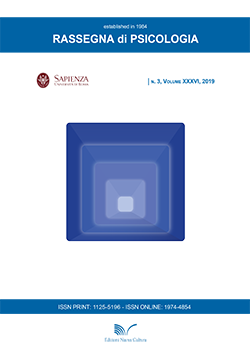Self-disclosures and case formulation
DOI:
https://doi.org/10.13133/1974-4854/16716Keywords:
self-disclosure, therapeutic relationship, case formulation, metacognition, therapeutic alliance.Abstract
Therapists self-disclose when they reveal personal information to the patient. Literature reports motivations for using self-disclosure and which information is more appropriate for this purpose. In spite of the potential usefulness of this strategy, indications about how to make it are often unclear and contradict each other. There is no a current and consistent rationale for deciding when to selfdisclose and with which purposes. In particular, information is lacking about how to deliver self-disclosure on the basis of case-formulation. We contend here that in order to self-disclose therapists must form predictions about what benefits they could achieve thanks to an understanding of patients’ maladaptive interpersonal schemas, interpersonal cycles active in session, patients’ metacognitive capacities and the motives that guide the patients in each specific moment. A detailed case example is used in order to explain how Metacognitive Interpersonal therapists deliver self-disclosure on the basis of a fine-grained case formulation. Finally, we suggest how this rationale can be adopted by clinicians of any orientation in order to operate self-disclosure that are, at the same time, genuine and well-formalized.Downloads
Published
2019-12-31
Issue
Section
Articles
License
Copyright (c) 2019 Virginia Failoni, Tiziana Passarella, Felix Inchausti, Raffaele Popolo, Giancarlo Dimaggio

This work is licensed under a Creative Commons Attribution 4.0 International License.

